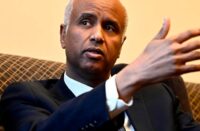The British Columbia business sector is voicing apprehensions about the potential economic repercussions of the province’s political ambiguity.
The final outcome of B.C.’s closely contested provincial election remains uncertain due to pending recounts and the final tally of absentee and mail-in votes. However, if these counts don’t alter the election night results, the province could likely see an NDP minority government, which will depend on support from the BC Green Party.
Business moguls argue that this outcome could instigate uncertainty, hamper development, and possibly deter investment in the province. Laura Jones, the president and CEO of the Business Council of B.C., stated that uncertainty is not favorable for business.
She mentioned that between $80 billion and $100 billion of investment decisions in B.C. are currently in the pipeline. Business groups fear that this capital could be redirected elsewhere if things don’t proceed in a timely manner and decisions aren’t made.
Jones further stated that the big concern for both business and the electorate in this election is affordability and a strong economy. Therefore, people are eagerly waiting to hear from whoever forms the next government.
While B.C.’s last minority government was surprisingly stable, lasting for three years before former NDP leader John Horgan called for an early election, minority rule has historically been short-lived.
Both the BC NDP and BC Conservatives seem eager to win over the BC Greens for the support they would need to command the confidence of the B.C. legislature. Some B.C. business groups see this outcome as a potential red flag.
Chris Gardner, president of the Independent Contractors and Businesses Association, believes that the Greens’ platform could trigger a wave of tax increases, spending, red tape, and regulation if enacted.
“All of that would not be conducive to growing and expanding our economy,” he argued. In his election night speech, Premier David Eby claimed that voters had expressed broad support for left-of-center ideals.
However, Andrey Pavlov, an economics professor at SFU’s Beedie School of Business, believes that the tight margins in the house could force whoever forms the government to moderate their positions.
“There is a silver lining. No political platform really has a full mandate to proceed as they were planning, and I think that’s a healthy check on anyone running government,” he said.
The Greens, he suggested, have criticized “bloated bureaucracy and government waste,” which could positively influence government policy.
While B.C.’s political uncertainty has stirred unease in the business community, it is not the sole factor at play. The Bank of Canada is slated to reassess interest rates again on Wednesday, with a potential cut that could help soothe concerns in jittery markets.





